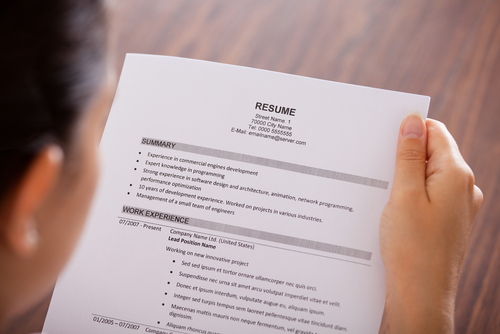Young professionals, with an entrepreneurial mindset, like us, should take advantage of traditional business management tools as tactics in our career planning strategy. I believe professionals should start implementing a “business management” framework to assess their career goals and define objectives with one clear end in mind: a tailored resume that highlights your top talent potential.
How to put together a resume that reads as a business plan?
The writing real estate that your resume provides should be well utilized to communicate your authentic and consistent message. The first step is to think of yourself as a start-up or business venture, rather than another employee in the bunch, and charge your resume with an inspiring vision.
In this article, I will go over some sections of a basic business plan and the ways to implement them to give an innovative twist to your resume writing process.
A Business Plan’s Cover Page Becomes Your Cover Letter.
The first section of a business plan is the cover page, which includes the business’ contact information. For you, this is the crafted message, with specific and updated contact details, you send along with your resume. No email should be sent without a proper introductory message to grab the recruiter’s attention. When writing this message think about your target audience (whom are you speaking to?) as well as your marketing plan (how do you want to promote yourself?) In 2-3 short paragraphs establish consistency and credibility, while picking the reader’s interest.
A Business Plan’s Competitive Analysis Becomes Your Resume Objectives.
Your competitive advantage is the unique value you offer to the organization or team. This includes knowledge, skills and perspectives. If you don’t state this yourself, others may fill-in the gaps. Brag about yourself a little. Which competencies make you the best candidate for that position and an asset to their teams? Remember to be creative and highlight your personality. Be brief and to the point (The interview will be the time to elaborate). Mainly, don’t shy away from your achievements, but talk about them in a humble, honest way.
A Business Plan’s Company Overview Makes up Your Resume Education and Experiences.
At which places have you worked at? What is your professional background? What degrees or certification have you received? What have been your major personal and professional accomplishments so far? The answers to these questions will be introduce to your resume as the list of your formal education and continuing education efforts, as well as past and current positions.
A Business Plan’s Executive Summary Bulks up Your Education and Experience.
What is it that you can provide in terms of knowledge and expertise? What innovative ideas do you bring to the table? What will make your professional journey successful in the long run and how would you impact your organization and team? By thinking about and answering these questions as you write your resume you’d be preparing yourself for the “where do you see yourself in 5 years?” scenario. A great strategy is to focus on the elements that must be there in the future in order for you to be fulfilled. Use the executive summary perspective to include your participation in initiatives and projects, and the results you helped generate. This is similar to the section above, however in this case you assign projects to individual positions and highlight results. Your main objective should be consistency.
What other sections of a business plan could help guide your interview and networking efforts?
The business plan sections below will help you gather and create value that attracts and connects you with your industry; peers, colleagues and influencers.
Industry Analysis.
You must showcase knowledge of your field or the industry you want to grow you career toward. Get familiar with relevant information and updates about your industry. Use the information you gather and create to add value to your online profiles and face to face conversations with colleagues. Current or Prospective employers will take notice.
Customer Analysis.
Assess who your target audience is; a specific group of influencers within your industry, prospective employers or colleagues, and organization or non-profit. Also, identify problems they currently face and strategies to solve them. This will prepare you for an interview or presentation. It would also help you decide if the field is the right fit and what you may want to contribute.
Taking the time to implement a business plan template to write your resume gives you an opportunity to assess and evaluate your goals and clarify your vision. I encourage you to think strategically about your career.
Take action now! Start developing your new and improved resume! Want some feedback? Send me a copy for a peer to peer assessment!
Gabriela Gotay, founder of entrespective.com, a blog for millennial professionals looking to expand their careers and talents, generating self-empowerment by implementing entrepreneurial perspective. She has over five years of experience as a HR Manager, Training and Organizational Development Coordinator. Find more about her at about.me.gabriela.gotay. References: Business Plan Structure found @Forbes.com on 03/06/14.
Image Credit: Shutterstock.com





